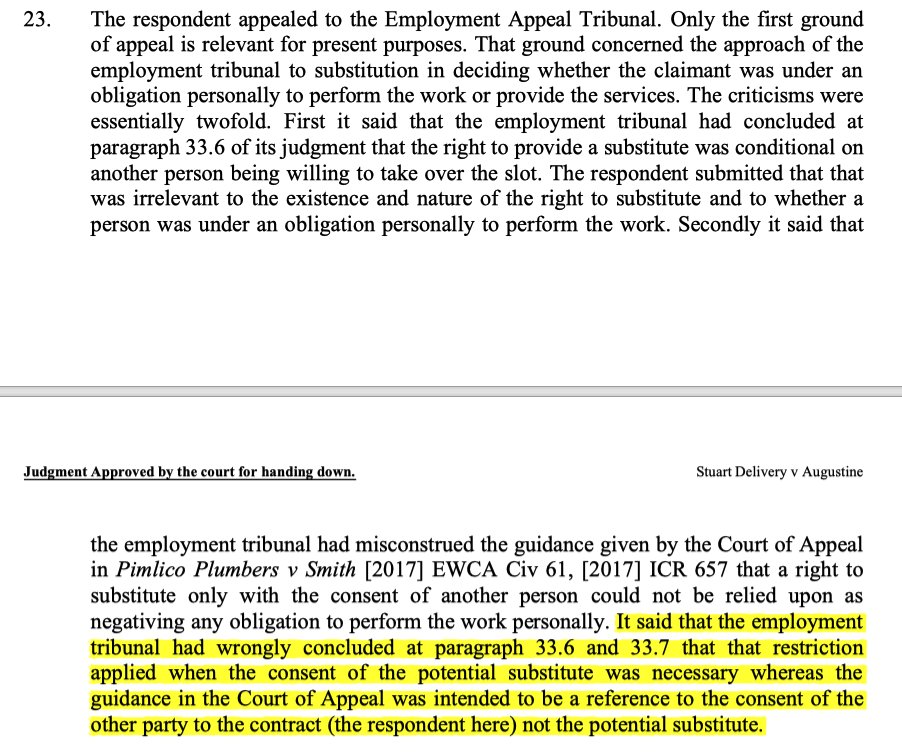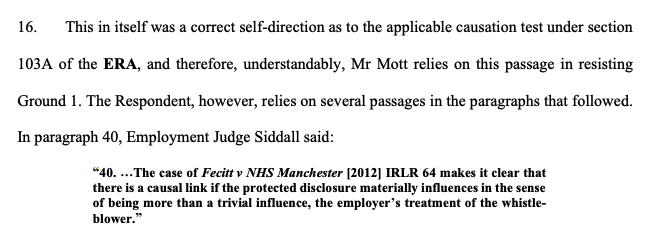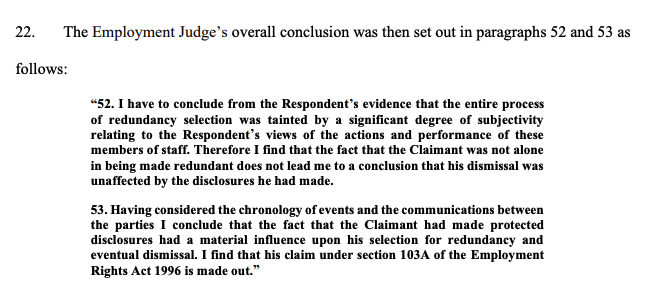
1/ Stuart Delivery v Augustine: CA upholds worker status of couriers whose only means of substitution was through a notification system to other signed up couriers in the hope that one of them wanted the slot. Personal performance wasn't negated
bailii.org/ew/cases/EWCA/…
#ukemplaw
bailii.org/ew/cases/EWCA/…
#ukemplaw
2/ This case concerns worker status of couriers delivering goods by mopeds, able to sign up for individual jobs or for time slots. By signing up to a time slot a courier committed to being in a specified area for 90% of that slot, with a minimum £9/hr guarantee.
3/ That guarantee was conditional on remaining in the area for 90% of the time, not logging off, not being unavailable for any 6-min period or refusing more than 1 delivery job during the slot. There were also delivery awards for achieving a weekly target.
4/ A courier could indicate a wish to give up a slot signed up for, & only had to complete it (or face penalties) if another courier didn't offer to take up the slot in his place.
5/ On A bringing claims for unfair dismissal, notice pay, holiday pay & other payments, he claimed employment status or alternatively worker status. At a PH, the ET found A wasn't an employee but was a worker. Argument re worker status focused on obligation to work & substitution 

6/ On obligation, the ET found a stick & carrot approach to rewards & punishments to ensure reliability of couriers & to ensure they turned up for slots for which they had signed up.
7/ On substitution, the ET found no unfettered right, but merely a limited right to notify generally of an unwanted slot so that others could take it up. The courier couldn't send his own substitute, not even if restricted to those with the appropriate qualifications/licence.
8/ The ET's reasoning identified the situation here as falling into the 5th category of substitutions in the CA decision in Pimlico Plumbers (see below), which wasn't inconsistent with personal performance. SD asserted on appeal this wasn't a 5th category case. 



9/ The EAT found the ET right in relying on the 5th category albeit not right to rely on it because of the need for consent of the substituting courier. Here A had no control over who would accept a slot but merely a hope that someone would do so & relieve of the obligation. 

10/ SD appealed on similar grounds to the CA, asserting it wasn't a 5th category but 4th category case of substitution limited to those as qualified to do the work, & hence should have been found inconsistent with personal performance.
11/ The CA considered that rather than getting caught up with the 5 categories set out by the CA in Pimlico Plumbers, the real issue was whether there was an obligation of personal performance & whether any right of substitution was inconsistent with it. The ET didn't err on this 



12/ Strict adherence to the rigidity of the 5 categories was unhelpful & artificial. The position, standing back, was a clear one, with the ET finding a system intended to oblige A to carry out work signed up for & a limited ability to notify others of a wish to release a slot. 

13/ That didn't provide any sufficient right of substitution removing from A the obligation of personal performance, a conclusion consistent with the Sup Ct decision in Pimlico that ability to appoint a substitute from Pimlico operatives didn't negate personal performance. 

• • •
Missing some Tweet in this thread? You can try to
force a refresh














